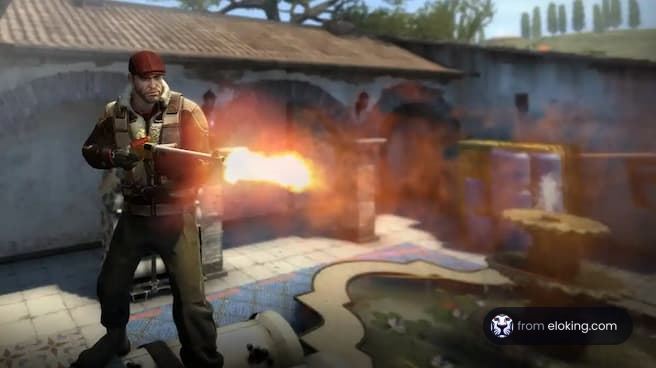79tka Insights
Your go-to source for the latest news and information.
How the CSGO Overwatch System Keeps Your Gameplay Clean and Fun
Discover how the CSGO Overwatch system enhances your gaming experience by keeping matches fair, fun, and free from toxicity!
Understanding the CSGO Overwatch System: Ensuring a Fair Gaming Environment
The CSGO Overwatch System is a community-driven approach designed to maintain a fair and balanced gaming environment for players. With millions of active users, ensuring the integrity of gameplay is crucial. Through the Overwatch System, eligible players can review reports on suspected cheaters, providing a judgment based on gameplay. If the majority of reviewers agree that a player has violated the game's rules, that player may face penalties, including temporary bans or permanent account suspension. This system empowers the community to play a significant role in maintaining fairness, fostering a healthier competitive scene.
In addition to enhancing fairness, the CSGO Overwatch System promotes accountability among players. Each participant in the review process is tasked with analyzing the recorded matches closely, looking for unusual behavior such as blatant cheating or disruptive conduct. This peer-review mechanism not only discourages malicious behavior but also encourages players to engage in positive gameplay as they understand their actions can be scrutinized by fellow gamers. Overall, the Overwatch System is a vital tool for ensuring that CSGO remains a fair and enjoyable experience for all its players.

Counter-Strike, often abbreviated as CS, is a popular first-person shooter franchise that has captivated gamers for years. In its latest iteration, players can engage in exciting matches and participate in various competitive modes, including CS2 Case Battles that offer unique challenges and rewards.
How the CSGO Overwatch System Works: A Guide for Players
The CSGO Overwatch System is a unique feature designed to maintain integrity and fairness within the game. This system allows players to review reports of suspected cheating or foul play submitted by the community. When sufficient reports are gathered on a player, the case gets assigned to volunteer reviewers who assess the situation. Each case involves watching a series of gameplay clips where the reviewer must evaluate the player's actions to determine if cheating occurred. The reviewer has three options: confirm the player is cheating, no evidence of cheating, or insufficient evidence, which adds a layer of accountability to the multiplayer experience.
To get involved in the Overwatch System, players must reach a certain rank and have a positive reputation within the community. Upon entering a case, reviewers are encouraged to pay close attention to key behaviors, such as aimbotting, wallhacks, or other suspicious activities that can give a player an unfair advantage. Each decision contributes to the overall judgment and can lead to temporary or permanent bans for confirmed cheaters. Ultimately, understanding how the CSGO Overwatch System works can empower players to make informed decisions and contribute to a fairer gaming environment.
Is the CSGO Overwatch System Effective in Reducing Toxicity?
The CSGO Overwatch System has been a topic of significant discussion among players and analysts alike, primarily regarding its effectiveness in reducing in-game toxicity. The system allows players to review the game plays of suspected cheaters and toxic individuals, providing a community-driven approach to moderation. Proponents argue that empowering the community to act against disruptive behavior can lead to a more enjoyable experience for all. However, critics point out that the reliance on player reports can sometimes lead to bias and subjective judgments that may not accurately reflect a player's actions.
Moreover, the CSGO Overwatch System has seen varying degrees of success based on the player base's engagement and the overall game culture. Understanding whether it effectively reduces toxicity involves analyzing feedback from the community and the measurable decrease in reports of disruptive behavior over time. Many players appreciate the transparency of the system, seeing it as a step toward fostering a healthier gaming environment. Yet, the question remains: can such systems genuinely create a long-term impact on player behavior, or do they merely address symptoms of a deeper-rooted issue within the gaming community?